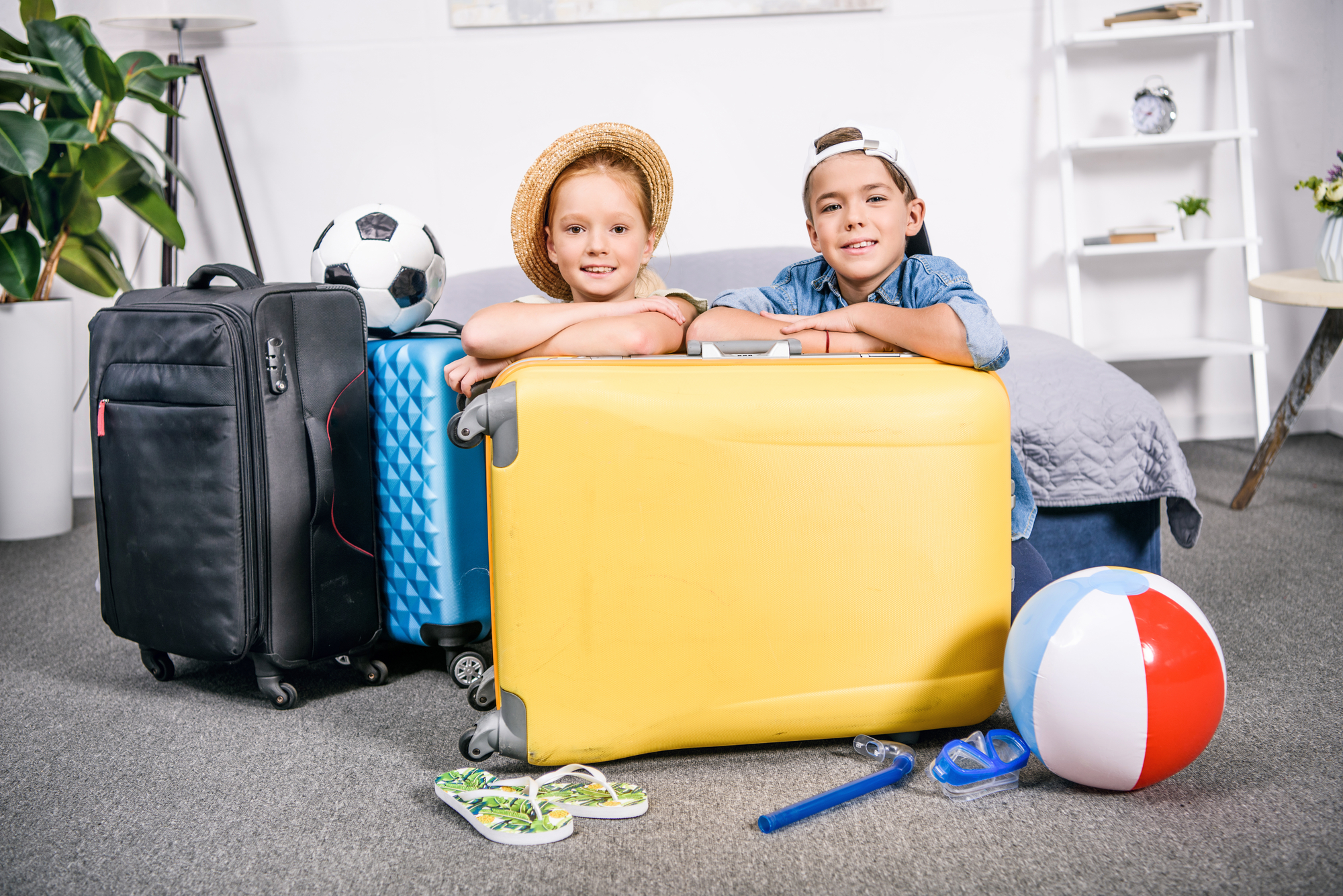Back to school checklist
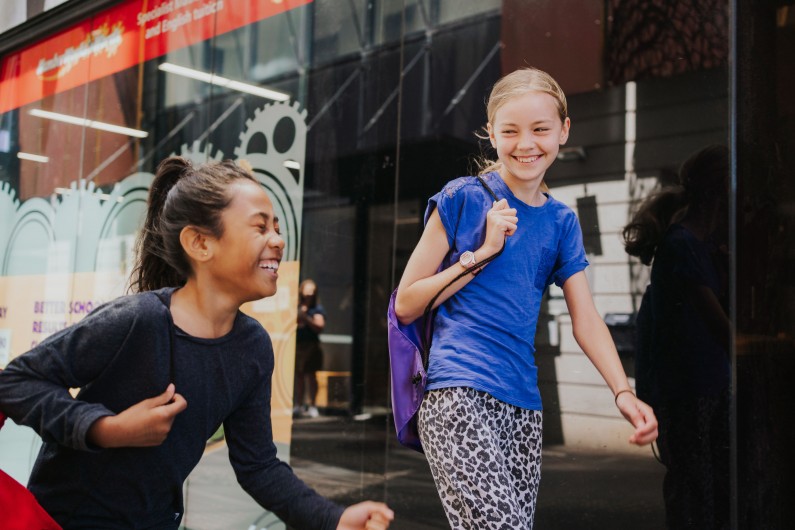
As the start of the school year approaches, it's time to get ready for a smooth transition. Whether your child is entering a new school or moving up a grade, following this checklist will ensure that you and your children are well prepared and organised for the upcoming school term. Start preparing and establishing healthy routines today! This blog outlines the essentials to help your children return to school with ease and establish healthy routines for the new term.
Stationery and school supplies
Having the necessary stationery supplies is essential for learning. To ensure a smooth start to school, it's important to have a checklist with all the essential items stocked up. This could include:
- Pens and pencils
- Exercise books for different subjects
- Glue sticks
- Rulers and rubbers
- Highlighters and colouring pencils
- Laptop device
- Water bottle
As we now live in a digital era where remote learning has become second nature, many schools now require students to use a device for their learning in addition to the mandatory school supplies. Double check with the school about which device will be the best fit, such as a laptop or tablet, and ensure you add that to your back-to-school checklist.
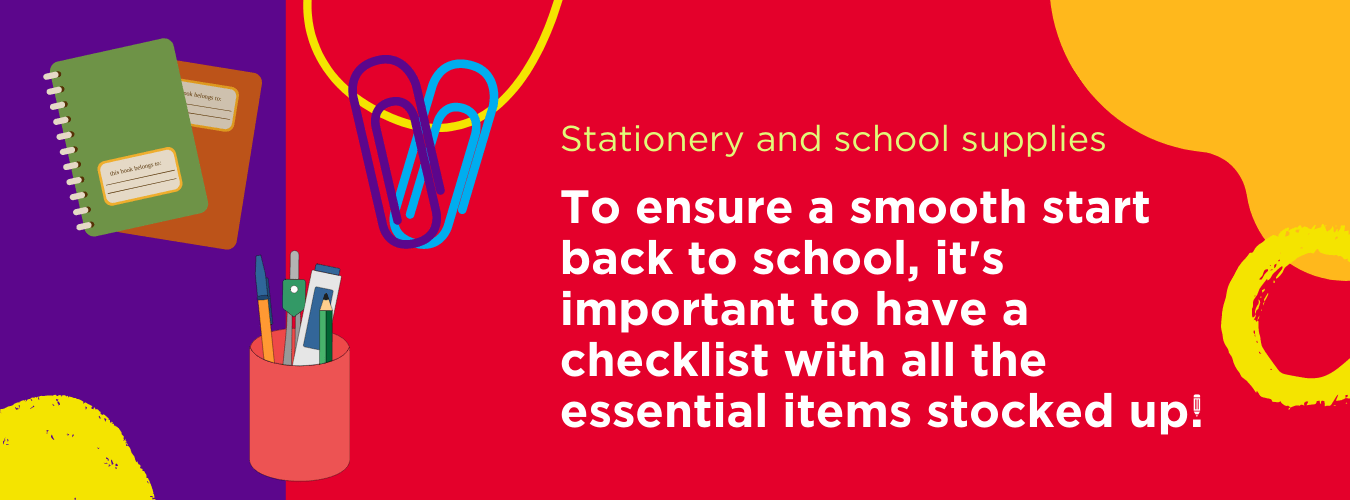
Make shopping for school supplies fun by letting your kids decorate their lunch bags and their books with fun colours, artwork, and stickers. This will get them excited about using their new school supplies.
School bag
A sturdy and reliable school bag is an essential item for the start of a new term, ensuring that students can comfortably carry their books, stationery, pencil case, water bottle, and other supplies throughout the day. Investing in school bags with multiple compartments and pockets can help students stay organised by providing designated spaces for different items like notebooks, folders, coloured pencils, pencil cases, water bottles and snacks.
Uniform
As children seem to grow up faster than ever, the back-to-school period presents an opportunity to assess your child's school uniform and school shopping list to ensure they have all the necessary items. Begin by confirming the school's uniform rules, dress code requirements and any restrictions. Whether your kids need a different skirt or an entirely new set of uniforms, locate nearby stockists and purchase all the items for appropriate attire.
While shopping for clothes can be challenging with children, early preparation will help you save money and avoid last-minute back-to-school stress. If your kids will be wearing a uniform, find out where the stockists are located and plan your shopping trip during less crowded times. If a uniform is not required, have your kids go through their wardrobe to select appropriate clothing options. Take note of any items they may need to purchase and make sure to complete this essential school supply shopping list ahead of the start of the term.
Once all the essential school supplies and clothing are sorted, involve your kids in choosing their outfits for the first week and organise them in their drawers for easy access during the busy first week. It's also a good idea to label all the supplies and clothing items with their names, especially the more expensive uniform pieces that are prone to getting misplaced during PE or swimming lessons.
School shoes
In addition to the uniform, it's crucial to have the correct shoes for school. Choosing durable and comfortable shoes is essential for the start of a new term. Look for shoes made from quality materials that can withstand daily wear and provide proper support for your child's feet. Consider the school's dress code when selecting school shoes. Some schools may have specific requirements, such as closed-toe shoes or specific colours. Familiarise yourself with the dress code guidelines to ensure compliance. Consider buying extra pairs for specific subjects like physical education (P.E.) or ensuring they have suitable footwear for subjects such as hard material technology.
It's also a good idea to break in new school shoes before the term starts to prevent blisters or discomfort. Encourage your kids to wear the shoes around the house for short periods to help them adjust and ensure a comfortable fit when they start wearing them for longer periods each day.
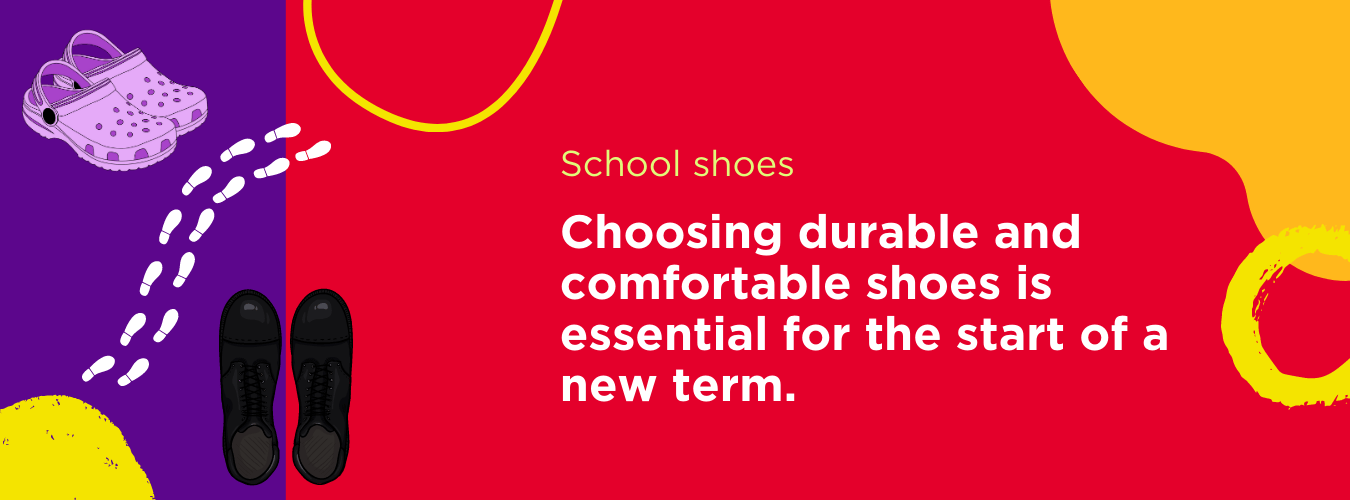
Promote healthy eating habits to fuel thinking
During the holidays our normal routines are cast aside and often, so are our eating habits. With more time at home, you might have had more time to cook or bake, or if you have been travelling, you may have been eating out or enjoying more picnics and BBQs. As we approach the return of school, it’s important to start planning healthy family meals, healthy snacks, and school lunch boxes.
Make sure the food that goes into your child’s lunch box is healthy and nutritious and will provide sustained energy to get them through their day at school. Preparing healthy meals for your kids will positively impact their health and well-being and enable them to build healthy habits.
When considering what to include in your child’s lunch box, think about:
- The healthfulness of the food
- Whether the foods are low or high GI and will provide sustained energy
- Whether your kids will eat the food
- How easy will it be for you and your kids to prepare the food every day?
Organising school lunches can be stressful. However, with a plan in place you can take out some of the stress and even prepare some ingredients for lunch the night before to make your school mornings run more smoothly.

Sleep schedule and night-time routine
When it comes to starting the school year strong, the first thing to get right is sleep. Children need ample sleep to focus on learning and respond well to routine. Getting into the back-to-school habit of early nights can be hard. We recommend starting the routine a week or two before school starts; this will ease the transition to early wake-up times when school starts again for the year.
This is also a good opportunity to create healthy night-time routines that support and nurture your children and prime them for a successful school day ahead. Night-time routines for school students might include preparing their clothes and shoes for the morning, packing their backpacks and bags, reading a book, and reflecting on their day.
After-school or extracurricular activities
As the new school term approaches, it's a good idea to start discussing and brainstorming potential extracurricular activities for your kids. Engage in conversations and introduce ideas that might be both enjoyable and beneficial for them. It's important to explore after-school activities, such as sports, music lessons, or additional tutoring like our after-school programme.
Extracurricular activities can have numerous benefits, including improving social skills and fostering new hobbies and interests. Take the time to discover their interests, then enrol them in a school's list of fun and suitable after-school activities. Encourage your children to take the lead and choose extracurricular activities that they will enjoy.
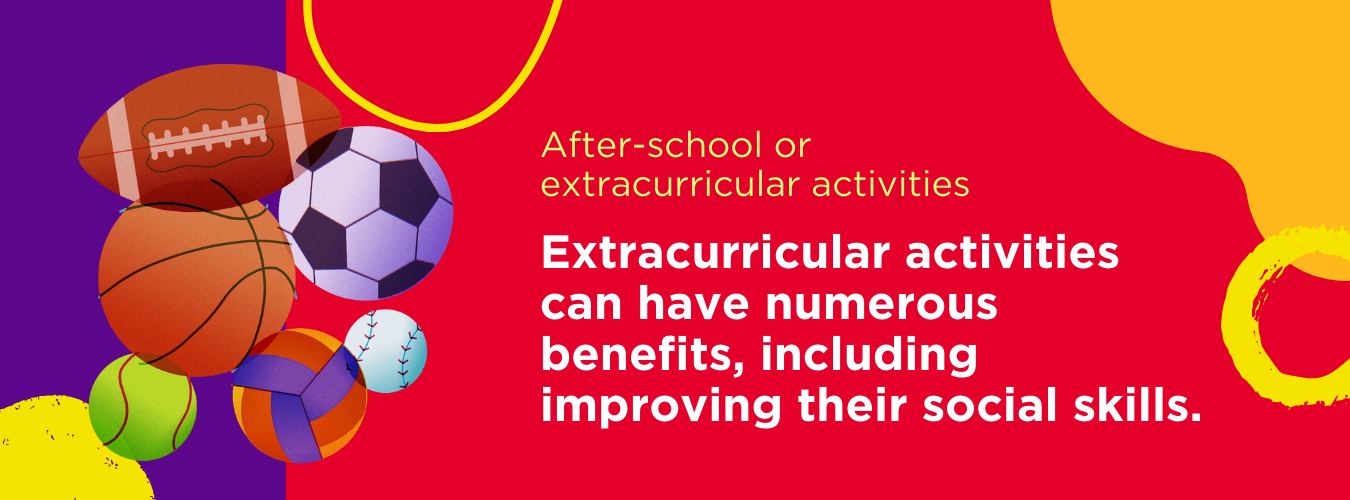
Organise before and after-school care and transport to school.
As parents, the return to school often means a return to busy schedules and work commitments. If your children will be attending before or after-school care, now is the perfect time to enrol them or arrange alternative care options. It's also crucial to plan for their transportation to school.
If your kids will be travelling alone on the bus or train to primary school for the first time, practise with them to familiarise them with public transport. For those walking to school take the opportunity to walk the route together, determining timings and distances to ensure a smooth start to the school year.
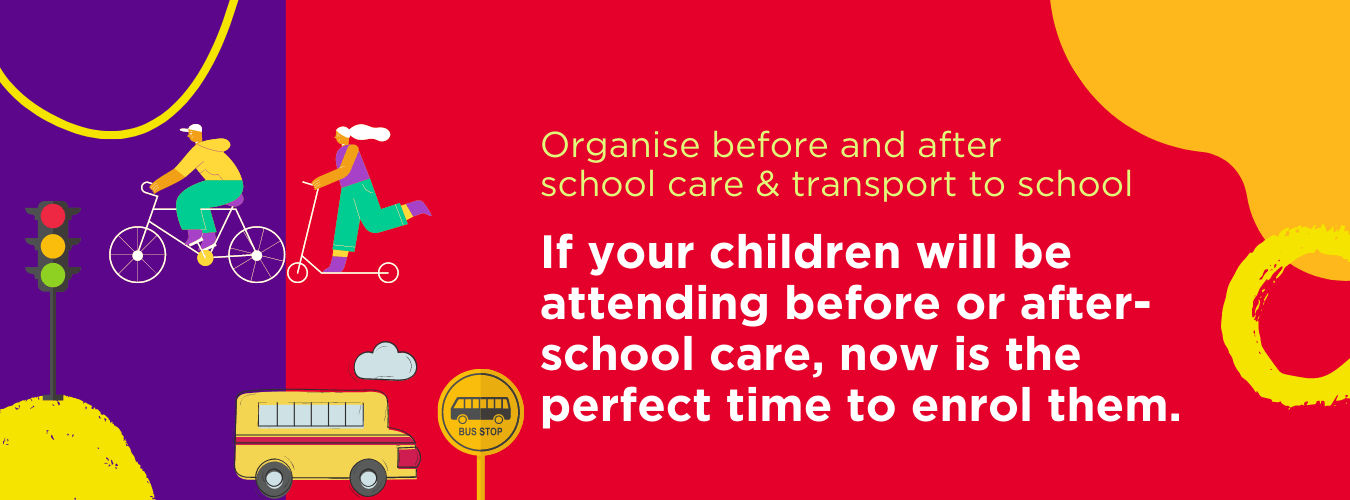
Structure is key
Children who are mentally prepared, have all the right materials, and are supported by an organised parent from day one start confidently!
Prepare a timetable for their week, let them know who is picking them up each day, and even tell them what is expected of them in the morning to get ready for school. All they need to focus on each day is learning.
Start as you would like to finish:
If you want them to finish the year strongly, then that is how they need to start. Time and time again, we meet parents who hold off, "letting them settle in". Holidays finish the day before school starts. Encourage them from day 1 to stick to their schedule and complete all of their work. Meet their teacher early, discuss specific things about your child, and let the teacher know you are supportive, i.e., open those communication channels! Finally, help your child with any difficulties early before they compound as the term goes on.
Set homework expectations:
Discuss what you expect with homework this year BEFORE they get any. Once they have their homework and do not want to do it, you have a battle on your hands. Do they need to show you their work every couple of days? Where will they do their work? What happens with their phones, TVs, and games during this time?
If you set these expectations now and write them down, you'll have something to refer to when the going gets tough—and it will! Most importantly, be there for them when they need help. You are their greatest role model, and your interest in their schoolwork reinforces the importance of education to them.

Praise effort and have high expectations:
The encouragement and feedback you give your child can have a huge impact on your child’s attitude towards learning. Praise your child for the effort that he or she puts into a project. This develops the idea that success is linked to effort rather than results alone.
Also, let your child know that you have high expectations of them. The fact that you believe in your child will give them the confidence to believe in themselves.
Help your school:
Look for specific ways that you can support your child's school. Maybe you have time to volunteer a few hours a week in the classroom or speak to the class about a special hobby or area of expertise you have. Or if time during the week is hard to come by, maybe there are things you can do for the school to help in other ways. Chat with your child's teacher. A child with an active parent in school will become more engaged.
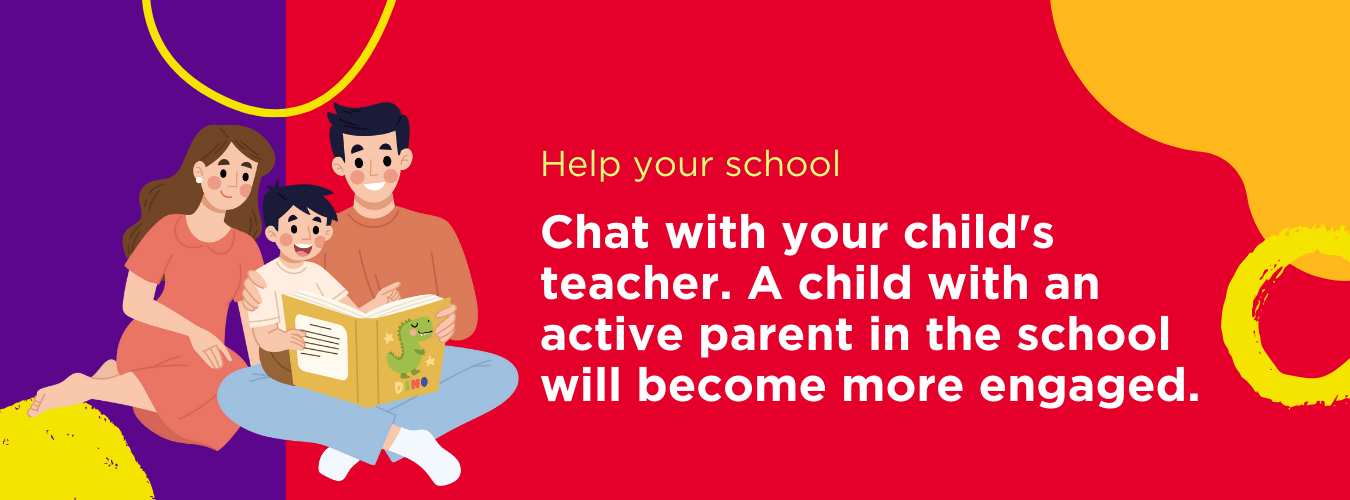
The return to school begins now and is an exciting time that is brimming with possibilities and anticipation. Be sure to support your child during this transition period by helping them prepare for the new school year. If your child needs a boost to get up to speed, get in touch with the team at NumberWorks’nWords.
At NumberWorks’nWords, we offer after-school math and English tutoring to support students aged 5 to 16. From learning basic literacy and numeracy concepts to advanced extension work, we can help. Click here to find your local centre or book a free assessment with the NumberWorks'nWords team today!




